Kia Ceed Sportswagon vs Peugeot 308 - Differences and prices compared
Costs and Efficiency:
Price and efficiency are key factors when choosing a car – and this is often where the real differences emerge.
Kia Ceed Sportswagon has a noticeable advantage in terms of price – it starts at 24300 £, while the Peugeot 308 costs 29200 £. That’s a price difference of around 4903 £.
Fuel consumption also shows a difference: Peugeot 308 manages with 2.30 L and is therefore convincingly more efficient than the Kia Ceed Sportswagon with 6 L. The difference is about 3.70 L per 100 km.
Engine and Performance:
Under the bonnet, it becomes clear which model is tuned for sportiness and which one takes the lead when you hit the accelerator.
When it comes to engine power, the Peugeot 308 has a clearly perceptible edge – offering 195 HP compared to 140 HP. That’s roughly 55 HP more horsepower.
In acceleration from 0 to 100 km/h, the Peugeot 308 is distinct quicker – completing the sprint in 7.60 s, while the Kia Ceed Sportswagon takes 9.70 s. That’s about 2.10 s faster.
In terms of top speed, the Peugeot 308 performs slightly better – reaching 225 km/h, while the Kia Ceed Sportswagon tops out at 197 km/h. The difference is around 28 km/h.
There’s also a difference in torque: Peugeot 308 pulls to a small extent stronger with 300 Nm compared to 253 Nm. That’s about 47 Nm difference.
Space and Everyday Use:
Whether family car or daily driver – which one offers more room, flexibility and comfort?
Seats: offers more seating capacity – vs .
In curb weight, Kia Ceed Sportswagon is barely noticeable lighter – 1335 kg compared to 1453 kg. The difference is around 118 kg.
In terms of boot space, the Kia Ceed Sportswagon offers noticeable more room – 625 L compared to 412 L. That’s a difference of about 213 L.
In maximum load capacity, the Kia Ceed Sportswagon performs noticeable better – up to 1694 L, which is about 371 L more than the Peugeot 308.
When it comes to payload, Peugeot 308 slight takes the win – 503 kg compared to 485 kg. That’s a difference of about 18 kg.
Who wins the race?
The Peugeot 308 proves to be outperforms in nearly all aspects and therefore becomes our DriveDuel Champion!
Peugeot 308 is the better all-rounder in this comparison.
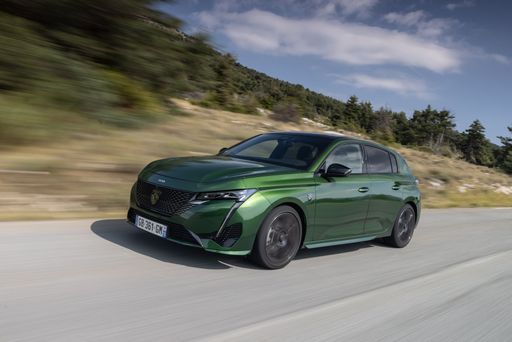 @ Peugeot / Stellantis Media
@ Peugeot / Stellantis Media
Peugeot 308
Costs and Consumption
View detailed analysis
Engine and Performance
View detailed analysis
Dimensions and Body
View detailed analysis
Kia Ceed Sportswagon
The Kia Ceed Sportswagon is a sensible and surprisingly stylish family wagon that turns daily chores into a bit less of a grind. Practical, comfortable and packed with thoughtful touches where they matter, it’s a smart choice for buyers who want usefulness without sacrificing personality.
details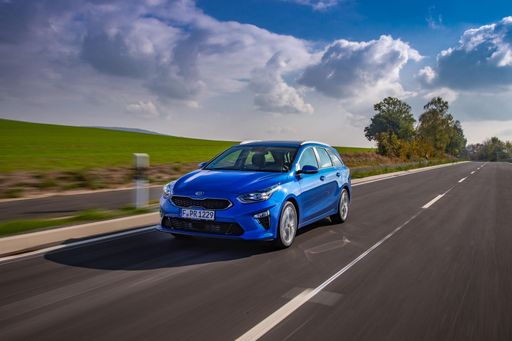 @ Kia Corporation
@ Kia Corporation
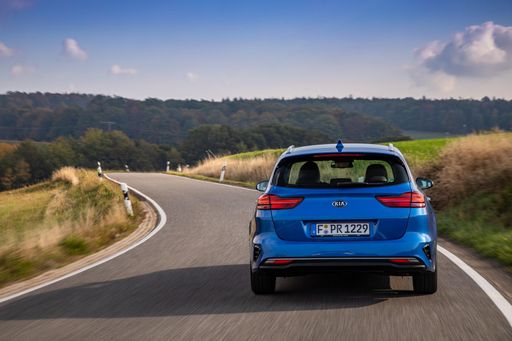 @ Kia Corporation
@ Kia Corporation
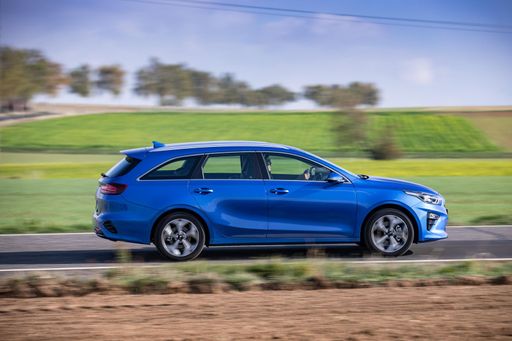 @ Kia Corporation
@ Kia Corporation
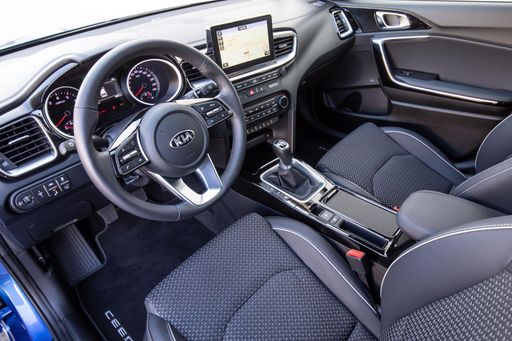 @ Kia Corporation
@ Kia Corporation
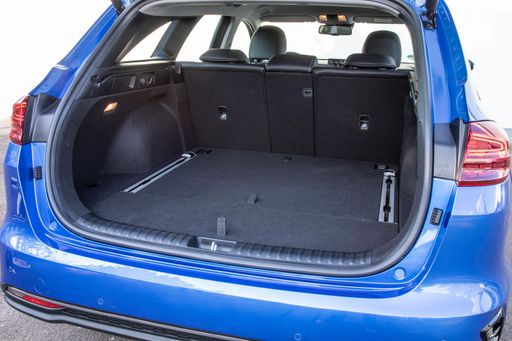 @ Kia Corporation
@ Kia Corporation
Peugeot 308
The Peugeot 308 brings a sleek, feline profile and an unexpectedly upscale cabin, with clever packaging and materials that feel a touch more premium than you might expect. It’s composed on the road, easy to live with for daily life, and a smart choice if you want a stylish hatch that still behaves when the road gets interesting.
details @ Peugeot / Stellantis Media
@ Peugeot / Stellantis Media
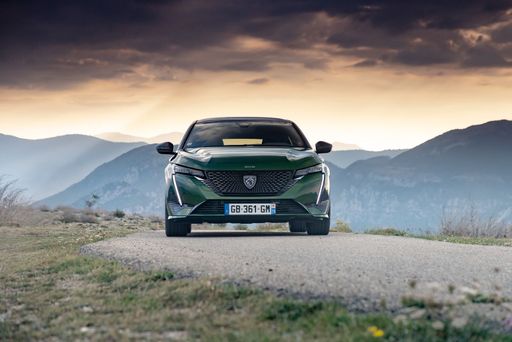 @ Peugeot / Stellantis Media
@ Peugeot / Stellantis Media
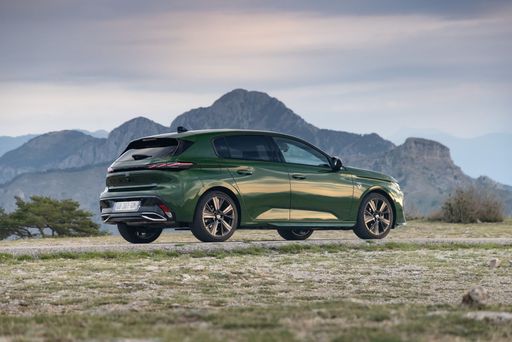 @ Peugeot / Stellantis Media
@ Peugeot / Stellantis Media
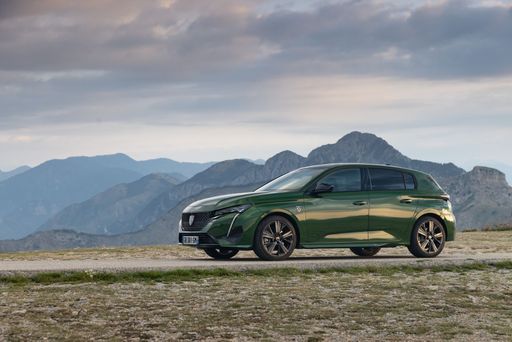 @ Peugeot / Stellantis Media
@ Peugeot / Stellantis Media
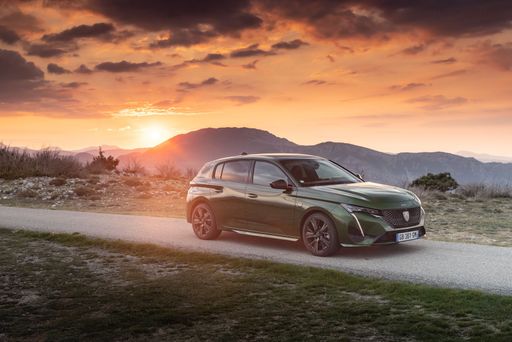 @ Peugeot / Stellantis Media
@ Peugeot / Stellantis Media
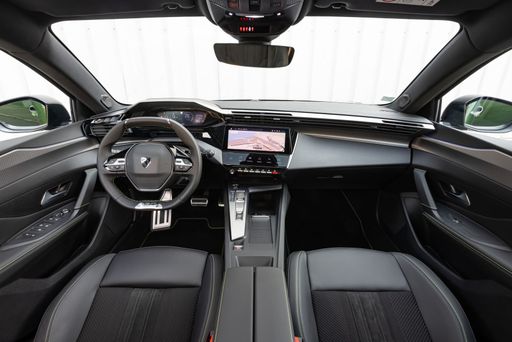 @ Peugeot / Stellantis Media
@ Peugeot / Stellantis Media
 @ Kia Corporation
@ Kia Corporation
|
 @ Peugeot / Stellantis Media
@ Peugeot / Stellantis Media
|
|
|
|
Costs and Consumption |
|
|---|---|
|
Price
24300 - 29100 £
|
Price
29200 - 42600 £
|
|
Consumption L/100km
6 - 6.4 L
|
Consumption L/100km
2.3 - 5 L
|
|
Consumption kWh/100km
-
|
Consumption kWh/100km
15.60 kWh
|
|
Electric Range
-
|
Electric Range
78 - 450 km
|
|
Battery Capacity
-
|
Battery Capacity
0.40 kWh
|
|
co2
137 - 146 g/km
|
co2
0 - 129 g/km
|
|
Fuel tank capacity
50 L
|
Fuel tank capacity
42 - 52 L
|
Dimensions and Body |
|
|---|---|
|
Body Type
Estate
|
Body Type
Hatchback
|
|
Seats
5
|
Seats
5
|
|
Doors
5
|
Doors
5
|
|
Curb weight
1335 - 1437 kg
|
Curb weight
1453 - 1749 kg
|
|
Trunk capacity
512 - 625 L
|
Trunk capacity
314 - 412 L
|
|
Length
4605 mm
|
Length
4367 mm
|
|
Width
1800 mm
|
Width
1852 mm
|
|
Height
1422 - 1465 mm
|
Height
1438 mm
|
|
Max trunk capacity
1545 - 1694 L
|
Max trunk capacity
1258 - 1323 L
|
|
Payload
455 - 485 kg
|
Payload
430 - 503 kg
|
Engine and Performance |
|
|---|---|
|
Engine Type
Petrol, Petrol MHEV
|
Engine Type
Petrol MHEV, Diesel, Plugin Hybrid, Electric
|
|
Transmission
Automatic, Manuel
|
Transmission
Automatic
|
|
Transmission Detail
Dual-Clutch Automatic, Manual Gearbox
|
Transmission Detail
Dual-Clutch Automatic, Automatic Gearbox, Reduction Gearbox
|
|
Drive Type
Front-Wheel Drive
|
Drive Type
Front-Wheel Drive
|
|
Power HP
100 - 140 HP
|
Power HP
131 - 195 HP
|
|
Acceleration 0-100km/h
9.7 - 13.5 s
|
Acceleration 0-100km/h
7.6 - 10.6 s
|
|
Max Speed
178 - 197 km/h
|
Max Speed
170 - 225 km/h
|
|
Torque
172 - 253 Nm
|
Torque
230 - 300 Nm
|
|
Number of Cylinders
3 - 4
|
Number of Cylinders
3 - 4
|
|
Power kW
74 - 103 kW
|
Power kW
96 - 144 kW
|
|
Engine capacity
998 - 1482 cm3
|
Engine capacity
1199 - 1598 cm3
|
General |
|
|---|---|
|
Model Year
2024
|
Model Year
2025
|
|
CO2 Efficiency Class
E
|
CO2 Efficiency Class
C, D, B, A
|
|
Brand
Kia
|
Brand
Peugeot
|
Is the Kia Ceed Sportswagon offered with different drivetrains?
The Kia Ceed Sportswagon is available as Front-Wheel Drive.
The prices and data displayed are estimates based on German list prices and may vary by country. This information is not legally binding.
